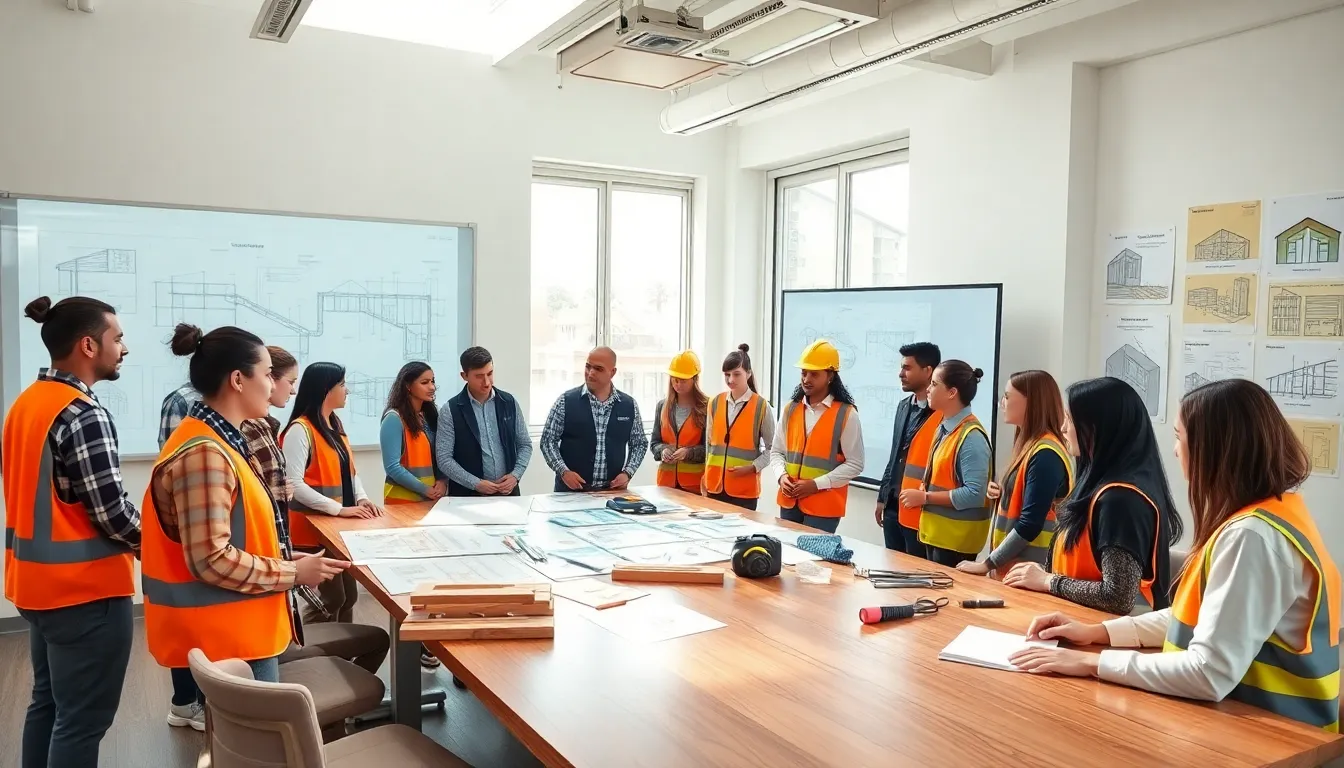Ever thought about diving into the world of building construction? Imagine wielding a hammer in one hand and your dream career in the other. Whether it’s skyscrapers or cozy homes, a building construction course can transform your aspirations into reality. Not only will you learn the ropes, but you’ll also acquire skills that the construction industry craves. Let’s dig deeper into the world of construction courses and discover why they’re essential for future builders.
Table of Contents
ToggleOverview of Building Construction Courses

A building construction course serves as a compass for aspiring builders, guiding them through the intricate landscape of construction practices and principles. It covers a wide array of topics: from understanding architectural blueprints to mastering safety protocols on site. Most courses are designed to accommodate varying levels of expertise, ensuring students gain not just theoretical knowledge but also the practical skills necessary for real-world applications. This versatility allows individuals from various backgrounds to step into the construction arena confidently.
Importance of Building Construction Education
Why is education in building construction deemed so vital? To put it simply, the construction industry is evolving. This sector demands professionals who are not only knowledgeable but also adaptable to new technologies and methodologies. Building construction education equips students with the fundamental skills needed to tackle complex projects while adhering to modern safety and environmental standards. Also, those who pursue this education often find they enjoy a competitive advantage in the job market, as they possess the credentials and know-how that employers seek.
Curriculum Components of a Building Construction Course
The curriculum of a building construction course typically encompasses a variety of essential components. Students begin with foundational topics such as construction mathematics, materials science, and site management. As they progress, they explore more advanced subjects, including project management and building codes.
Skills Developed Through Building Construction Courses
One of the standout features of these courses is the diverse skill set students develop. From technical skills, like reading blueprints and executing structural calculations, to soft skills, such as effective communication and team collaboration, the course prepares individuals for the multifaceted challenges of the construction field.
Hands-On Training and Practical Experience
Also, hands-on training is a hallmark of these programs. Many courses incorporate internships or project-based assignments that enable students to apply their learning in real-world settings. This practical experience not only cements their theoretical knowledge but also allows them to build a portfolio that showcases their capabilities to potential employers.
Certification and Accreditation Options
Certification and accreditation can enhance a graduate’s employability significantly. Numerous organizations offer certifications in specific areas of construction, such as building inspection, project management, and safety regulations. Enrolling in a course from an accredited institution provides assurance that the program meets industry standards, thereby boosting one’s credibility in the job market.
Career Opportunities After Completing a Building Construction Course
Completing a building construction course opens the door to a variety of exciting career paths. Graduate roles can range from construction manager to site supervisor, estimator, or even architectural technologist. These professionals play critical roles in ensuring that projects are completed on time, within budget, and to the required safety standards. As construction projects continue to rise globally, so does the demand for qualified individuals who can bring these projects to fruition.


